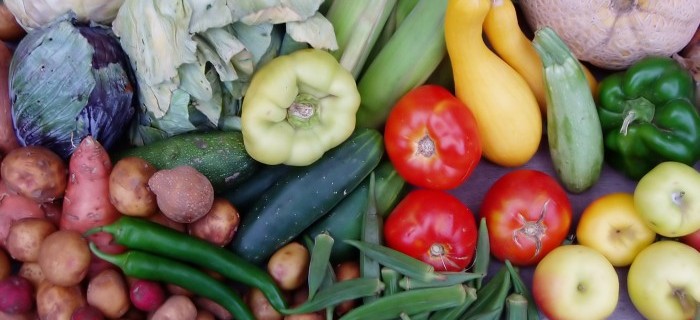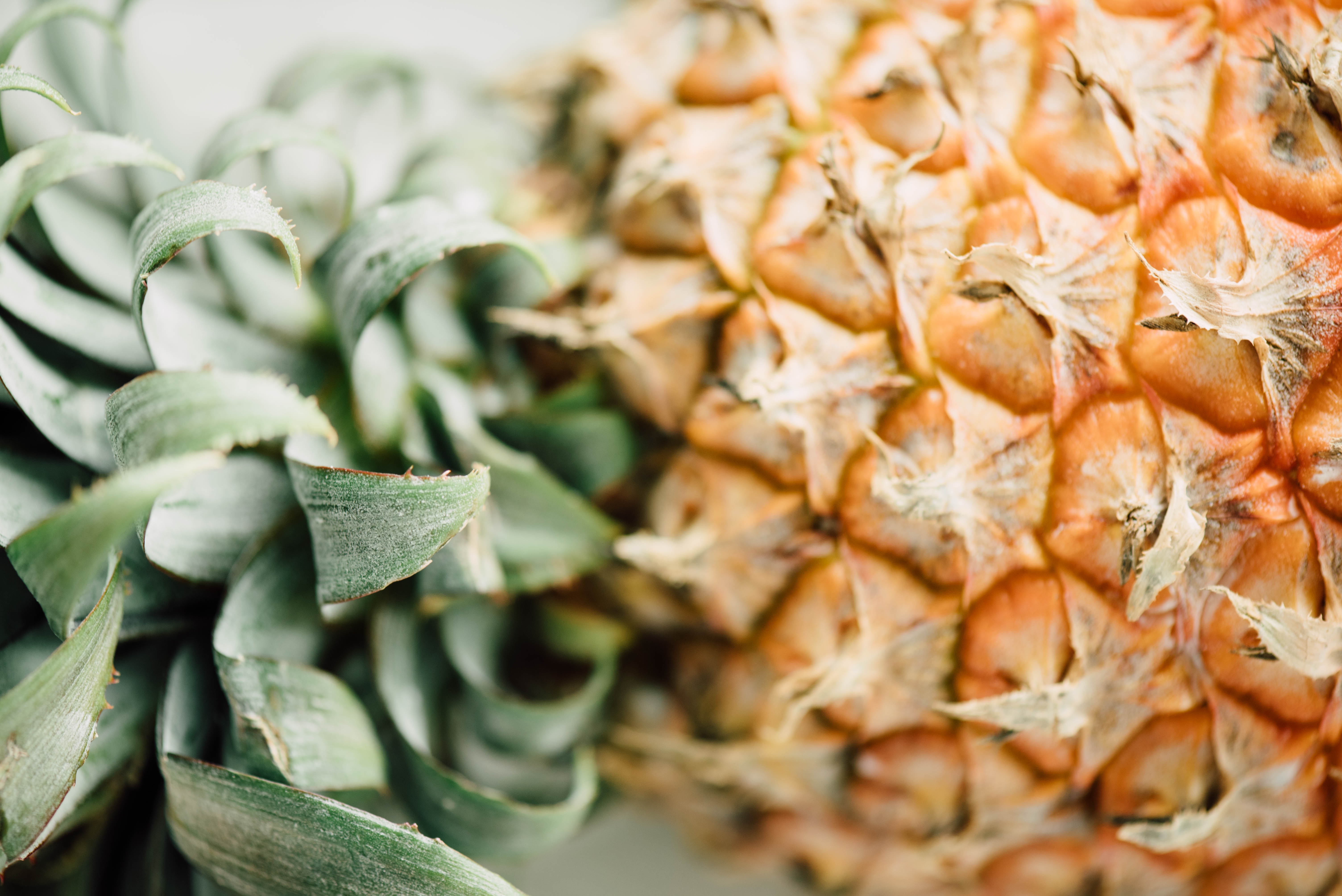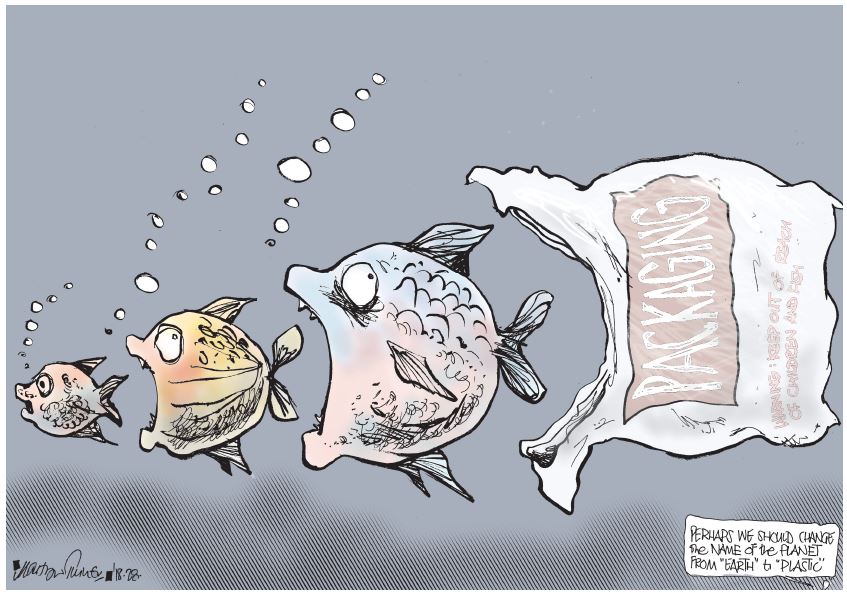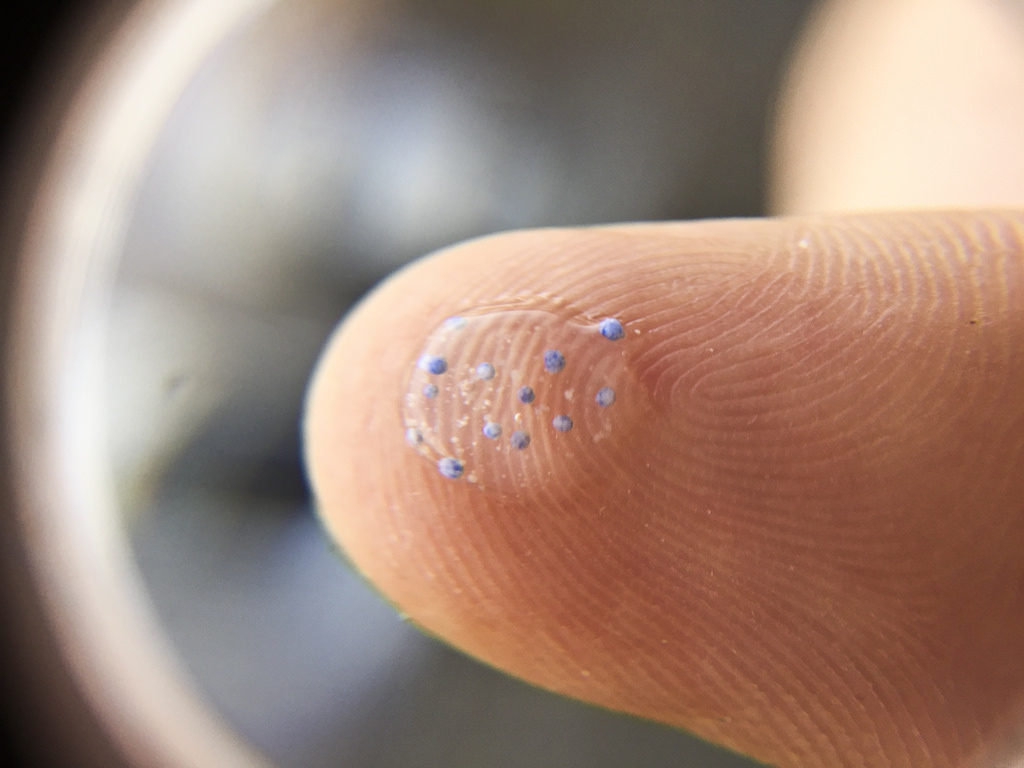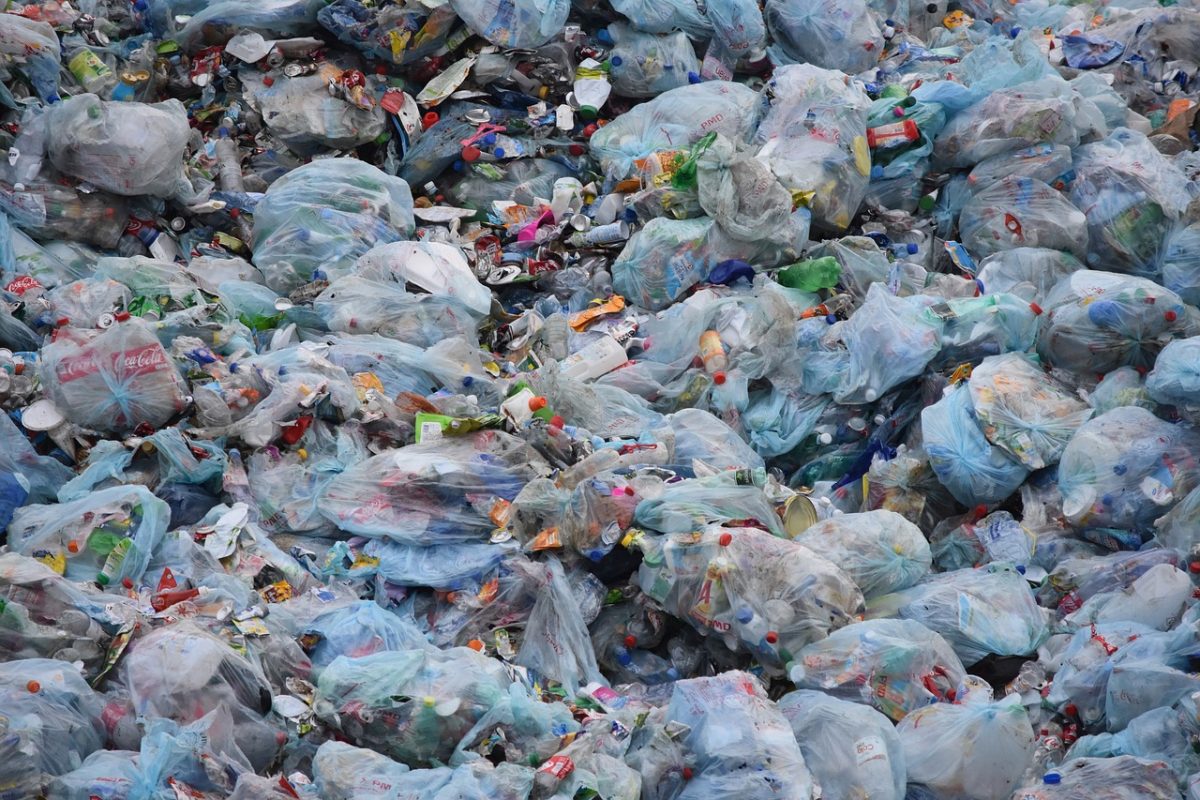Cork students visit UCC labs to study impact of plastic pollution

June 7th, 2018
A World Environment Day workshop at University College Cork (UCC) helped a group of sixth class students to study tiny particles of plastics found in various products.
The theme of this year’s World Environment Day, used to raise awareness on urgent environmental issues, was plastic pollution.
The Eco-Kidz event on Tuesday was organised by UCC’s School of Microbiology and Environmental Research Institute (ERI) and hosted 50 students from St Catherine’s National School.
Students learned about the devastating impact of plastic pollution on earth through entertaining, educational films during their visit to UCC’s Microbiology labs.
Using optical equipment such as microscope students also found an opportunity to spot microplastics in every day, extraordinary items such as nail varnish and glitter.
Microbiologist and UCC lecturer Dr Niall O’Leary said he was happy with the response of the “hugely enthusiastic” students to the workshop.
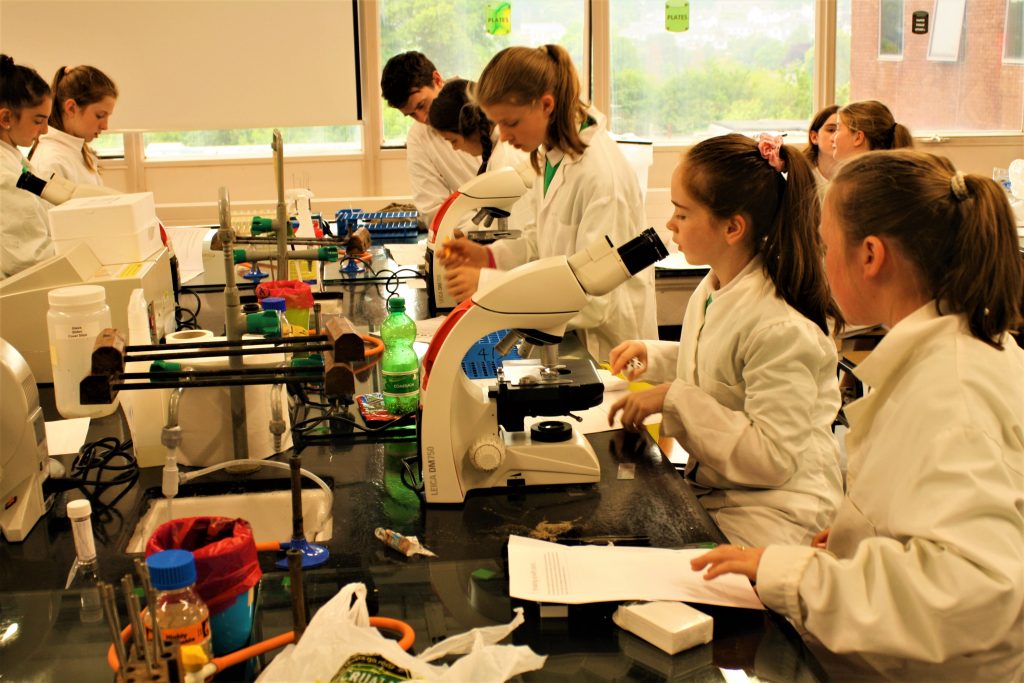
St Catherine National School Student in UCC lab Photo: UCC
“It is so important for them to get hands-on experience and become investigators themselves as opposed to getting academic information only,” Dr O’Leary said.
“They became exposed to different aspects of plastic pollution, some of them became upset when we showed them what plastic does to marine animals, but that is the reality of it,” he added.
“Our job as a university is to engage with the community, so that is not always about science and finding scientific solutions sometimes it is about getting people to change their behaviour or imparting knowledge that they can share with other members of the community”.
Open Litter Map, the first global open litter mapping web application created by Irish entrepreneur and UCC graduate Seán Lynch was also introduced to students to encourage them to snap any plastic waste they come across and upload it on the web application.
Arno Fricke, a microbiology researcher at UCC’s Environmental Research Institute, who also helped with the event, emphasised the importance of educating children about environmental issues.
“Obviously a one-day event won’t change their habits they might keep on using the nail varnish and glitter, but it will give them a perspective, so maybe they would reflect on it next time,” Mr Frick said.
“If we teach the next generation to avoid plastics then everyone would contribute to this global problem and this will make our job way easier,” Mr Fricke added.
Each year, a total of 500 billion plastic bags are used, and trillions of plastics find their ways into the ocean. Plastic pollution also kills 100,000 marine animals every year.
[x_author title=”About the Author”]
